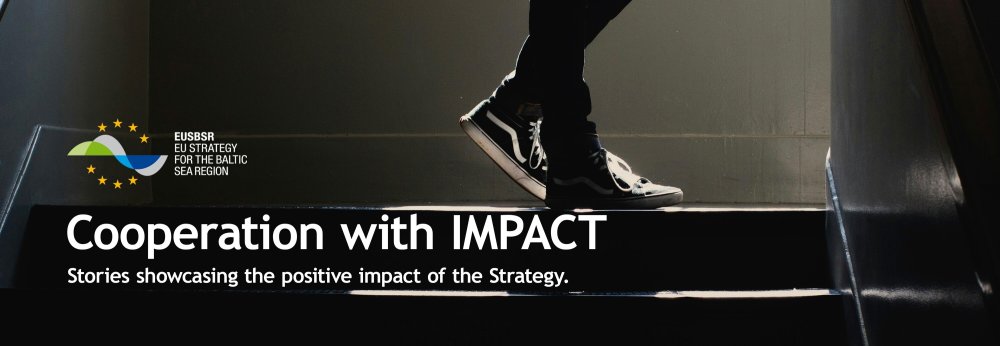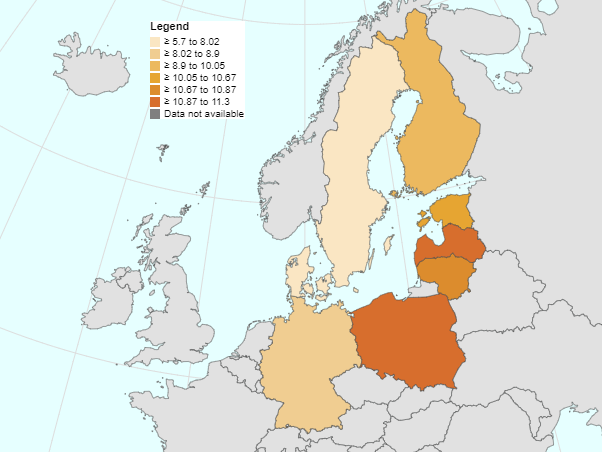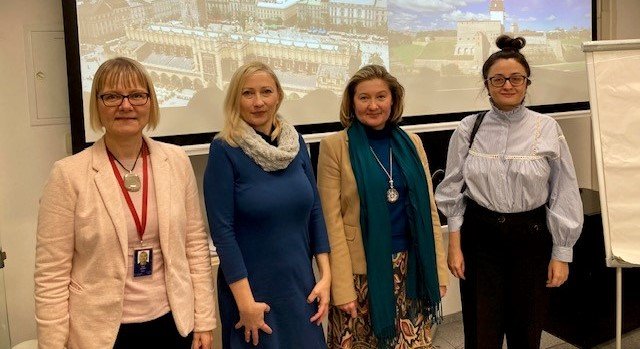PA Education
News
Joining forces for increased prosperity - easing the way to the labour market for vulnerable groups of young adults
Text: Anja Karppinen, Baltic Sea Strategy Point
Addressing vulnerable groups of young adults is an area where the macro-regional approach in the Baltic Sea Region has proven to work well. The determinant cooperation of multiple strakeholders contributes to increasing the prosperity in the region, which is one of the three main objectives of the EU Strategy for the Baltic Sea Region.
Guidance centres for the youth are a successful model when organizing an answer to the societal and individual challenges of young adults not in school, training and without a job. To further develop the functions of these centres, multiple partners around the Baltic Sea, supported by Policy Area Education coordinators, have now created and tested a competence profile for Youth Centre Coordinators.
Young adults not in school nor vocational training and without a job (also referred to as NEETs) are a vulnerable group in our societies, facing a risk of lifelong exclusion that can lead to social problems and challenges to mental well-being. For the societies, this causes costs which could be avoided with timely support. NEETs is a diverse group, which is difficult to find, and difficult to motivate to take the first step to ask for help. Often there are complex reasons behind the situation, and the needed measures from the welfare societies are equally complex.
When the EU Strategy for the Baltic Sea region was launched in 2009 vulnerable groups of young adults became a priority to address. Policy Area Education agreed with the European Social Fund to set up a collaborative platform to develop solutions to this complex societal challenge. This platform called School to Work (S2W) was born in 2015 after three years of preparations, stakeholder dialogues and investigating funding opportunities in all eight countries using the European Social Fund. In 2015, in the eight Baltic Sea Region countries, on average 11.2 % of young adults in the age group from 15 to 29 years were considered as NEETs. In 2022 the same number was 9.4 (source: Eurostat). The target level for 2030 in the EU is 9 %.
From 2017 to 2020, a cluster of four NEET-related projects funded by the European Social Fund were implemented in Finland, Estonia, Lithuania and Sweden. And as mentioned, one area studied and further developed was Youth Guidance Centres.
“Youth Guidance Centres is an excellent example of how a project has translated into a targeted solution that helps people, in this case, vulnerable groups of young adults.” Ewa Dębska, EUSBSR National Coordinator, European Policy Department, Ministry of Foreign Affairs, Poland.
Training coordinators to better manage the Youth Guidance Centres
The low-threshold service centres of the so-called Youth Guidance Centres provide multiple welfare services under one roof and have become increasingly common in the Baltic Sea Region. Commonly, the centres gather multiple municipal and national public services responsible for educational guidance, labour market integration, social services, and health. The idea is to make it easier for the user to access available services while facilitating coordination and cooperation among authorities both on a case-by-case basis and on a strategic level. As new, cross-sectorial structures they face the complexity related to the needed collaboration between different authorities but also the need to provide individual guidance for users. There are for example “Ohjaamo” in Finland, “Navigatorcentrum” in Sweden, “Ungevejen” in Denmark and “Jugendberufsagentur” in Germany.
A key function in these centres is the coordinator who is responsible for managing the centre including staff representing different organizational and professional cultures, often with varying mandates and missions. This is a demanding role that needs to be strengthened, as integrated services become a necessary response to complex and increasingly fragmented welfare systems.
This is where macro-regional collaboration stepped into play: In the framework of the School to Work and its NEETs knowledge-sharing platform it was decided to define a new profession of Coordinator for Youth Guidance Centres and develop and test education for these coordinators in the Baltic Sea Region. This was done in an Erasmus+ - strategic partnership project, from 2020 to 2022. The partnership represented both practitioners and educational providers from Denmark, Finland, Lithuania, and Sweden. Based on this competence profile a curriculum was developed in the spring of 2021, and the first 21 coordinators participated in pilot education. Participants were from all eight member states of the EU Strategy for the Baltic Sea Region.
“School to Work with the Coordinator Training Programme allowed me to learn from others with similar tasks as mine in the other countries of the Baltic Sea Region. It was also the start for an important network of peers, where we will continue learning from each other when developing and operating Youth Guidance Centres,” says Edyta Klimowska-Bobula, Head of the Adult Learning Coordination Team at the Regional Labour Office in Cracow, Poland.
As a result of the long-term focus on developing solutions to address the societal challenges related to young adults, Poland and Lithuania are currently exploring the possibility of establishing Youth Guidance Centres. The centres in Finland and Germany are further refined with the help of the results from the macro-regional strategy.
Konstancja Piątkowska, Head of Unit at the Labour Market Strategy Unit, the Polish Ministry of Family and Social Policy concludes: “I’m looking forward to the effects of our Polish pilot projects, establishing Youth Guidance Centres all over the country based on the model developed in the Coordinator Training Programme. I hope this good start and important programme will be followed by more such initiatives where we jointly address the challenges related to vulnerable groups including youth. A next step could be to address also migrants with a similar structure as the Youth Guidance Centres.”
Ewa Dębska, Konstancja Piątkowska, Edyta Klimowska-Bobula, and Anna Pamerska. The last three took part in the Coordinator Training Programme. Photo: Anders Bergström
Cooperation with Impact since 2009
Together, we are building a green, prosperous, and well-connected Baltic Sea Region. Established in 2009, the EU Strategy for the Baltic Sea Region aims to strengthen cooperation and benefit from common opportunities in the region.
Read more about the positive impact of the Strategy
We support the work for safeguarding the Baltic Sea from invasive species






